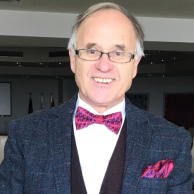
Emeritus Professor Univ. Stuttgart, Stuttgart, Germany, GUC Vice Chairman Board of Trustees, Vice Chair UN-GGIM Private Sector Network
The world is getting smarter. On one hand, ever better and more powerful technologies are available for data acquisition, processing and storage, and on the other hand, the internet is rapidly developing into an all-encompassing network called the Metaverse, for mapping and simulating the real world, for the joint processing of data and information for a wide variety of applications. The lecture shows how current and future methods can be used to capture and model cities in 3D, 4D and 5D (temporal changes), as well as the potential for the most diverse collaborations between different institutions and departments.
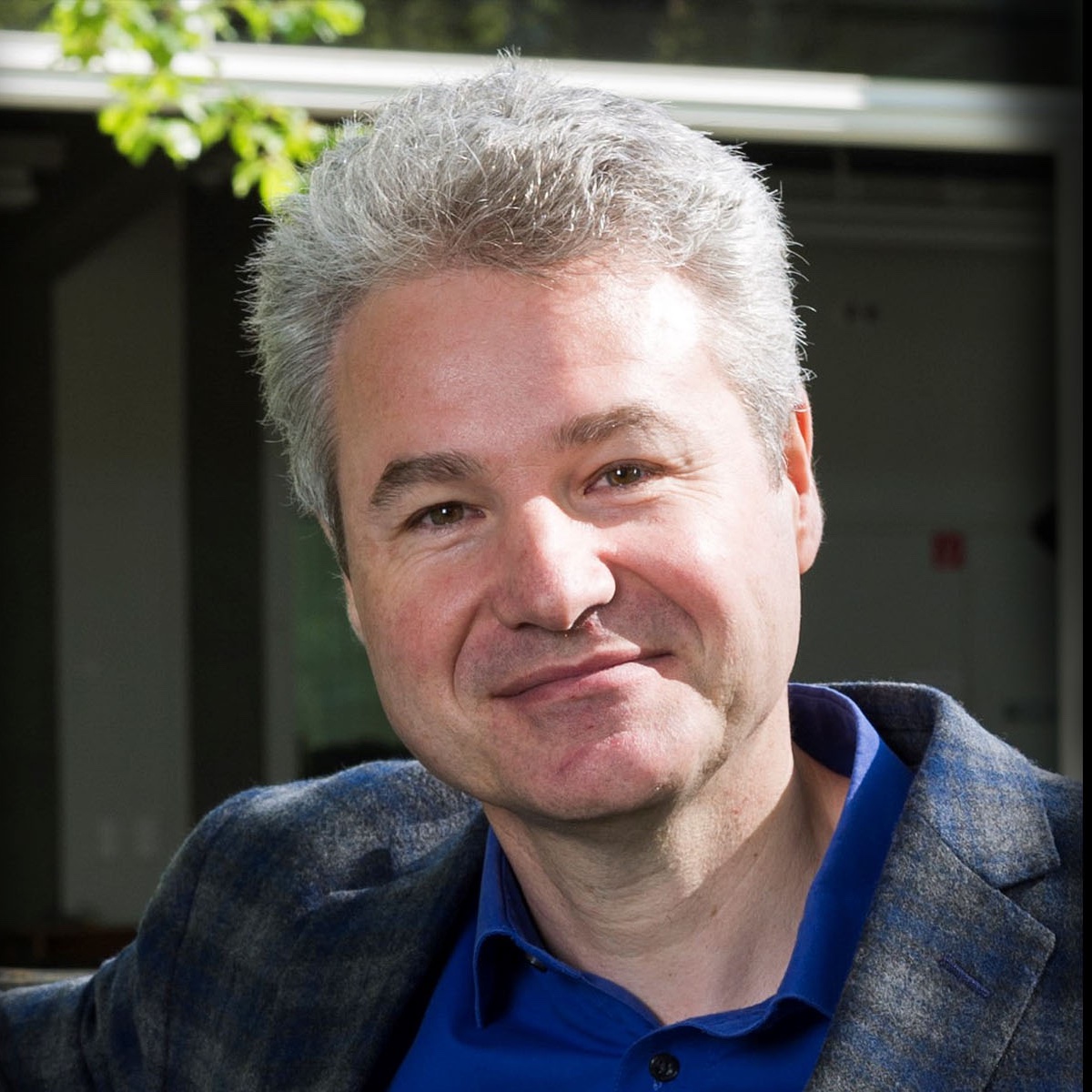
Full professor of the Institute of Measurement and Control Engineering at the Karlsruhe Institute of Technology (KIT) President of the IEEE Intelligent Transportation Systems Society (2012-2013) Associate editor of the IEEE Intelligent Transportation Systems Magazine
Self-driving and cooperative cars will shape our road traffic in the not too distant future. Video, lidar and radar sensors will capture multimodal information from the vehicle's surroundings. High definition digital maps complement this information. Based on the situation awareness gained from this sensor data, the vehicle can build a model of the real world and predicts possible future evolutions of the scenery. This builds the basis to independently plan and execute future movements resulting in safe and comfortable traffic flow. This technology trend thus opens up opportunities for significantly improved road safety and greater travel comfort in future cities.
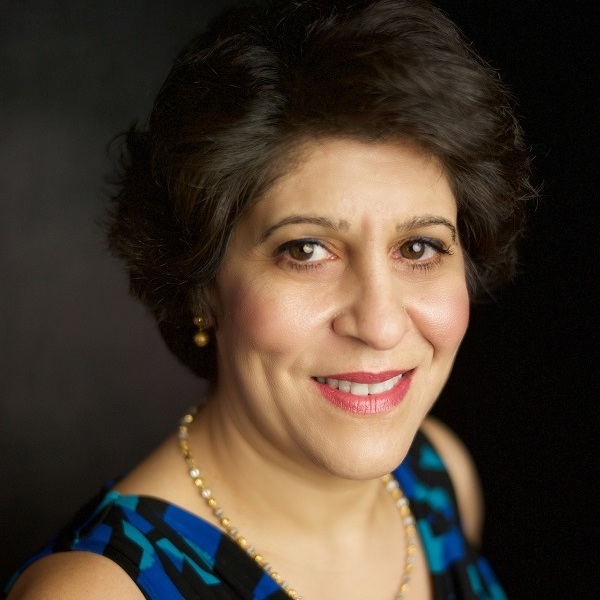
Executive Director of the Taylor Geospatial Institute; Member of the United Nations Committee on Experts on Global Geospatial Information Management (UNGGIM); Appointed member of the US National Geospatial Advisory Committee (NGAC).
There's never been a better time to be in Geospatial: There's more data than ever, whether it's from space or sensors or plain tabular data that we can relate back to a location and time! Couple the data with cloud storage and processing, with advances in analytics, AI/ML, and visualization, and geospatial is finally showing its true potential to the world: Connecting the world's data! We connect it within digital twins, smart cities, and yes even the Metaverse! We connect for disaster response, for climate resilience, for health and way more! While this sounds really great, there's one hiccup! Geospatial data is not as FAIR (Findable Accessible Interoperable and Reusable) as it should be! So if we really want geospatial to be at its very best, it's time for us to invest in making geospatial information FAIR! Let's do it!
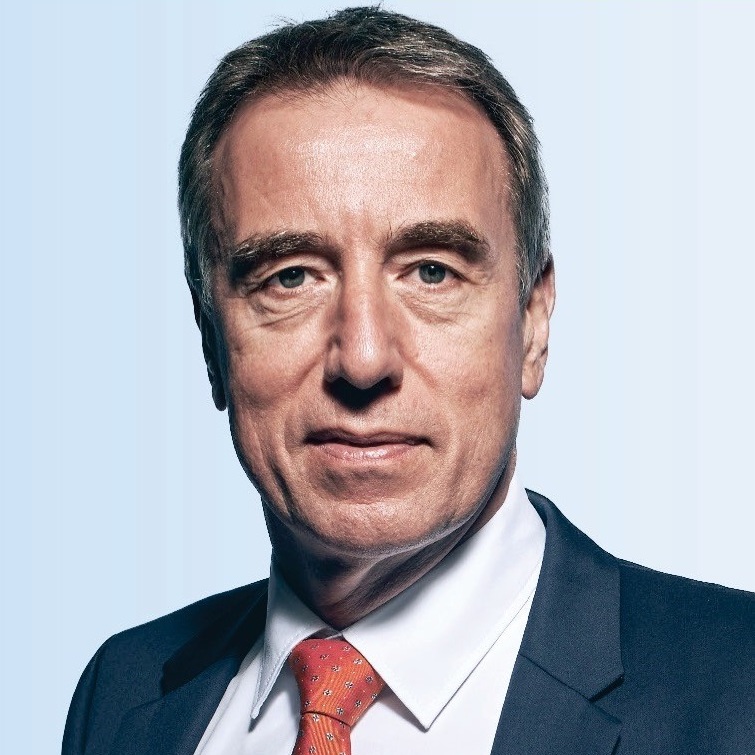
Former member of the Hexagon AB Executive Management. Chair of the Scientific Advisory Council of the GFZ German Research Centre for Geoscience in Potsdam, Germany. Patron Board member of the world Geospatial Industry Council and chairman of D5 AG in Switzerland
The metaverse is an evolution of the internet, enhanced and enabled to consistently deliver 5D content; spatially organized information and experiences; and real-time communication. The fact is, that the internet, and our experience of it, is still predominantly 2D. The metaverse isn’t flat, it is 5D. Sharing thoughts about the enormous potential for the metaverse, the potential for; global network of spatially organized, predominantly 5D content that will someday be available for use in every human endeavor. Discuss Hexagon capabilities to quickly and economically capture aspects of any real-world system in a 5D digital environment “Smart Digital Reality™” , to deliver the promise of the metaverse. Exploring the design, build and manage of complex system in real-time, along with the potentials of interacting, measuring and analysing this system, whether this system is economic, societal or a sustainable planet.
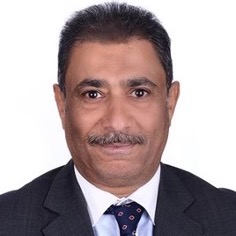
Prof. Mohamed Aref is a professor at Housing and Building National Research Center (HBRC) -Ministry of Housing, Utilities and Urban Communities in Egypt. Head of the Egyptian Code committee for Sustainable and Smart Cities. Member of Smart Cities Strategy committee in Egypt- in cooperation with World Bank (WB) and Ministry of Housing, Utilities and Urban Communities. Member and rapporteur of specialized committee for "Sustainable Planning and Infrastructure", affiliated to Egyptian Council for Green Building and Sustainable Cities.
Presenting the Egyptian Code for Smart Cites, with focus on converting the existing cities into smart cities, for existing cities in the Nile delta and valley. Significance and technical standards of the Egyptian code; interrelation between sectors of smart city, urban requirements for smart cities, outputs of urban management and infrastructure sector, smart governance and smart economy. Related aspects of Information and Communication Technology (ICT), Intelligent Transportation Systems (ITS), Electrical Energy Grid Systems, and drinking water, sewage, irrigation and solid waste.

Arch. Jan Blasko, graduate of Technical University of Darmstadt, additional qualification in real estate management at the ADI School in Stuttgart. Partner at Gerkan, Marg and Partners (GMP) Hamburg, Germany .Worked at the Shanghai GMP office until 2006-2009. Lead major projects in Europe and Asia. Designed and managed various large-scale national and international projects, especially in the field of infrastructure and mixed-use high-rise projects. Industry expert for projects in the rail and aviation sector.
Smart cities should aim to use technological innovations at the service of the people, to create a sustainable and human-centered environment that is tailored to the needs and well-being of all citizens.
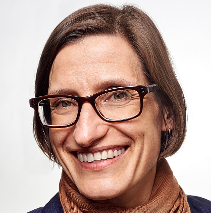
Prof. Dr. Iris Belle is a full Professor at Stuttgart University of Applied Sciences, Faculty of Architecture and Design and serves as the Dean of Studies at the International Master Programme Smart City Solutions.
Cities are complex. Equally complex are the origins of the problems our cities face. Social and environmental pressures, resource constraints the threat of climate change and the need to adapt. Smart cities combine novel information and communication technology with traditional infrastructure. Entrepreneurial thinking in public administration and the private economy opens up new possibilities and solutions. This keynote presents approaches educating architects, designers and planners and equip them with the ability to collaborate across disciplines, identify needs and opportunities, formulate visions, and create liveable urban futures.
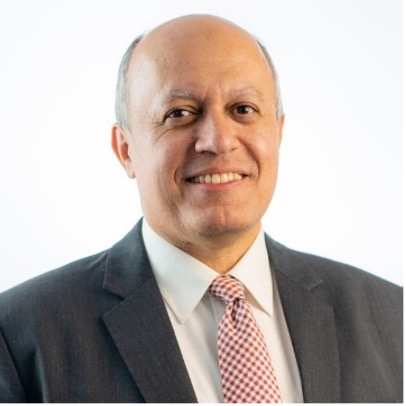
Dean of the school of Engineering and Applied Sciences, Nile University, Egypt. Manager of the Information Technology Academia Collaboration (ITAC) program at the Information Technology Industry Development Agency (ITIDA). Recipient of the Egyptian encouragement state prize for engineering sciences in 2007 and 2014, and the first-class medal of excellence in 2017.
The Information Technology Industry Development Agency (ITIDA), through the Information Technology Academia Collaboration (ITAC) program, has been supporting the collaboration between the industry and academia in different areas, among them is the domain of smart cities. This presentation will cover different types of collaboration and will shed light on some projects related to smart cities.

CEO of German Sustainable Building Council | DGNB e.V. Dr. Christine Lemaitre is Chief Executive Officer of the DGNB e.V., the German Sustainable Building Council for 11 years. She received her Ph.D. degree form University of Stuttgart in Structural Engineering in 2007. She is also a jury member of the German Sustainability Award Design. Her intersets include; holistic sustainability concepts, greenwashing and sustainable design solutions.
Climate protection is decided at the municipal level. It is an opportunity, but also a challenge that all cities and municipalities face together, it doesn’t matter which size or where they are located. On that local level we can foster and experience a true sustainable live style which combines and connects buildings, infrastructure, nature, and people for a better quality of life in municipalities. In order to achieve this, we need to engage in a pragmatic exchange of knowledge on these topics between the municipalities and across borders to develop solutions together and to learn from each other.